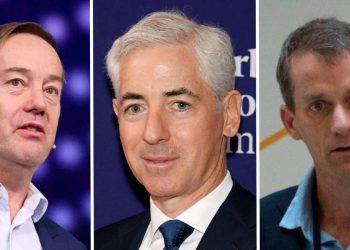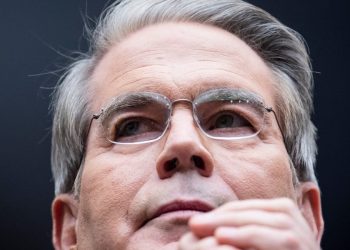- Hong Kong’s latest residency program has drawn applicants largely from Guinea-Bissau and Vanuatu.
- Vanuatu’s cash-for-residency program has been the subject of international scrutiny.
- About 100 Guinea-Bissau residents applied for the Hong Kong program this spring, per government data.
Hong Kong’s latest sales pitch involves a cash-for-residency program targeted at wealthy investors — and most of them come from just two countries.
The plan, which began in March, offers two-year visas in exchange for an investment of 30 million Hong Kong dollars, about $3.8 million, into the city. Investors can extend their visas and eventually apply for permanent residency. It builds on prior investment-for-residency programs offered in the last two decades, which aim to capture foreign capital and talent to boost Hong Kong’s economy.
This version attracted over 250 applicants in March through May, per government data from last month. Nearly 80% of the applicants come from just two countries: Vanuatu and Guinea-Bissau. The countries have long attracted mainland Chinese looking for other residency options, including government officials — a pattern highlighted by Reuters in 2014.
Few people buy citizenship in Vanuatu or Guinea-Bissau with the intent to move to the countries or even step foot there. Permanent residency instead marks a stepping stone to Hong Kong’s residency scheme, which prohibits mainland Chinese residents.
Vanuatu, a Pacific nation, has a similar immigration program to Hong Kong. The country markets itself as a “business-friendly, tax-free destination” that issues passports to wealthy individuals for an investment of $130,000 into the country.
A 2021 report from The Guardian identified several controversial figures who gained citizenship through this program, including two founders of Africyrpt, the crypto investment app, who disappeared in 2021 along with billions of dollars in bitcoin, and Hayyam Garipoglu, who was imprisoned for embezzlement in Turkey.
Vanuatu, a small country of about 350,000 people with few natural resources, relies on residency sales to buoy its economy. Selling citizenships accounted for nearly 50% of the country’s revenue, the government said in 2022. Vanuatu citizens can travel to the UK and the European Union, among other destinations, without visas.
While Vanuatu pledged in 2022 to improve due diligence checks to ensure the legitimacy of potential investors, the nation granted citizenship to multimillionaire Andrew Spira, who had been convicted of using a false passport and drug charges in Australia in 2023, according to a November report from the Australian Broadcasting Corporation.
Passports from the West African country of Guinea-Bissau have also become somewhat of a hot topic on the Chinese social media platform Xiaohongshu. Dozens of posts viewed by Business Insider promoted the nation’s passports, shown to be worth 150,000 to 200,000 yuan, or about $21,000 to $27,000. The posts, which have been viewed over 600,000 times, highlight that the passports qualify for Hong Kong’s residency program.
Xiaohongshu
Guinea-Bissau has no known programs offering citizenships in exchange for investments. The West African nation’s citizens currently make up the highest proportion of applicants for Hong Kong’s New Capital Investment Entrant Scheme — 139 out of 333 applicants, per government data.
Hong Kong’s latest attempt to woo investors comes just as a report by Henley and Partners shows that the city lost 4% of its millionaires from 2013 to 2023.
The city has tried cash-for-residency programs before. Its last attempt was suspended in 2015. According to Bloomberg at the time, that program brought in over 24,000 new residents, almost 90% of whom were Chinese nationals.











 American Dollar Exchange Rate
American Dollar Exchange Rate